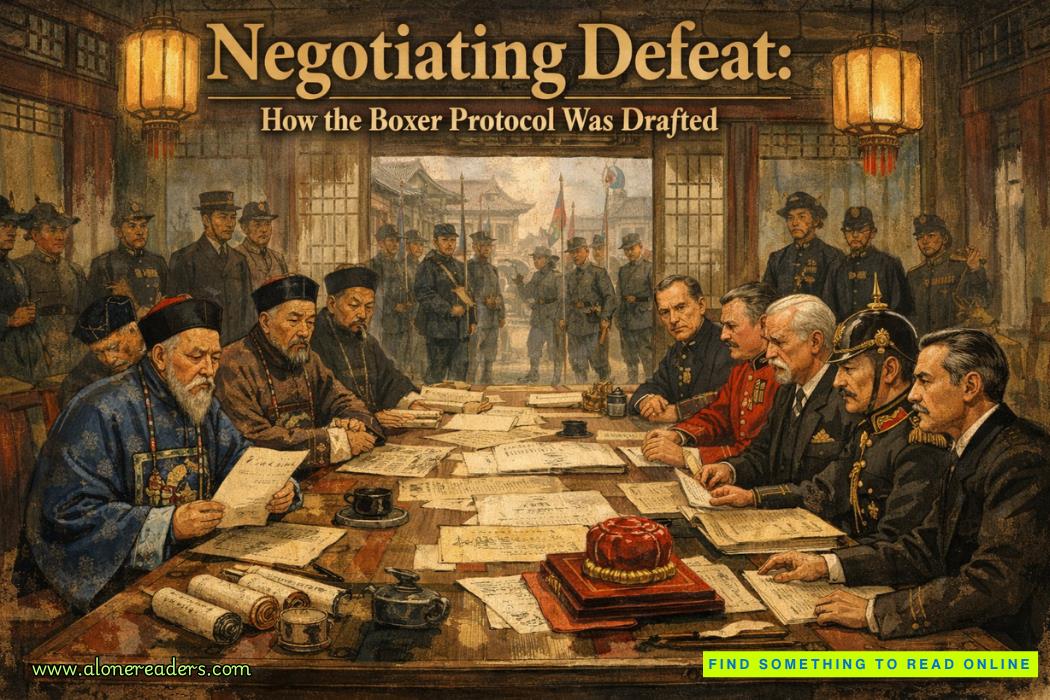I saw how the circumstances of their early lives had shaped them. Whereas my grandmother sought to erase the squalor of her childhood with the sweep of a powder brush, my father tried to find solace in achieving order in the space around him. While I oncebelieved my father to be cold and unfeeling, I now saw him resembling one of Ichiro’s antique boxes. He had his own hidden drawers, many of which contained his own silent pain.
I saw when he was eighteen years old opening the letter from Marthe, learning that she was his birth mother, as well as him standing in the entrance to Marthe’s apartment, nervous and ill at ease, waiting in the parlor as she entered the room in one of her pastel-colored dresses.
But just as I could imagine my father in his most vulnerable moments, I could do the same with my grandmother. I could envision Marthe as easily in that beautiful pink gown, as I could see her, scared and shivering, in the dark room of her apartment, years earlier, giving up her child to a woman she knew would take far better care of him than she ever could.
I took pen to paper. And as each page filled with my words, I came to see their humanity. As Marthe was quick to point out, light and shadow existed within every life.
And through all of these different angles of perception, I saw a clearer picture of myself emerging. I realized that I was now a piece of this story, too. As my story grew, I saw not only how those around me had lived. More importantly, I sought to understand how they revealed different parts of themselves by looking closely at how they had loved.
7.
Marthe
Paris 1897
Marthe detected a change in Charles. Like two dancers who knew the other’s rhythm so well, she sensed that he was holding something back from her.
For nine years she had known the language of his caresses. His fingers had traveled over her skin in a thousand different patterns. She knew him as both a lover and as an explorer. He had discovered her with hands warm and curious; he had mined her every valley, every curve, every cliff.
But now he no longer encouraged her acrobatics in bed. Instead, he preferred simply to hold her tight against him, her body nestled against his own. When they lay in her butterfly bed, he would turn on his side, cup his hand around her belly, and bury his face in her hair to breathe in her perfume.
She could feel not only the change in his touch, but in his body as well.
“I’m concerned,” she would tell him. “You have grown so thin.” The ribs of his chest protruded like harpsichord strings.
“It’s nothing,” he reassured her. “You are my sustenance. My medicine. I only need to see you more.” He pointed to the pocket watch he had taken out from the breast pocket. “The hours in between have been too long.”
But Marthe knew better. He hardly ever ate in front of her anymore, and eschewed even his favorite meals, which she asked Giselle to prepare for him. Not only did he refuse her offers of cold duck or pheasant poached in red wine, he seemed unable to tolerate alcohol anymore as well. Marthe couldn’t help but notice he barely touched his favorite vintage of Margaux.
“You need to see a doctor,” she insisted the next time she saw him, but he waved her off.
“Émilienne has already arranged for me to see a specialist. So no need to wrinkle your brow worrying about me.”
Émilienne. The mere mention of his wife’s name felt like the prick of a needle against her skin.
Since she had known him, Charles almost never divulged the details of his familial life. She knew—and fully accepted—early on that he had a wife and a son. He spoke of them sparingly, as if they were objects displayed on a shelf she would never be able to see or touch. She was aware he had a title, a town house in Paris, and an estate at the family’s holdings in Bordeaux.
On more than one occasion, Charles had complained that his wife preferred to stay in Paris rather than at their estate, when it would be easier to have her and their son safely ensconced in the country. When Émilienne was in town, it was more difficult for him to stay with Marthe for any length of time. Their meetings had to be brief, their passion often hurried. “She thinks I’m with friends,” he’d tell Marthe, making sure he drank a scotch before he left so his wife would smell the familiar scent of a gentleman’s afternoon.
But just as Charles expected Émilienne not to question him on his activities outside their home, he expected the same from his mistress. It was an understood arrangement between him and Marthe that she would maintain a respectful distance from all matters concerning his family. She would never be invited to his apartment on the Rue Fortuny even when his wife was in the country. She was never to ask questions pertaining to his personal life. The life he shared with Marthe only existed within the walls of the apartment on the Square La Bruyère.
But Marthe had never been able to completely curb her curiosity. Early on in their relationship, only weeks after their trip to Venice, she felt the need to know where Charles spent the main part of his life. And so one afternoon, when she knew Charles was away in London, Marthe set out to see his Paris home.
She chose her simplest dress and a hat that shielded her features for what felt like an expedition in espionage. When she arrived at the building’s ornately carved stone facade, her body rushed with adrenaline. The town house was an impressive example of Beaux Arts architecture, far more grand than what she could imagine. She looked at the elegant windows with the latticed glass panes. She studied the chiseled stonework. The shell motif that scrolled in a fanciful arabesque over the door’s threshold. The glimmering brass knocker with the golden ring.
Marthe had been caught by surprise when the door opened and a young woman, around her age, stepped outside, her fingers clasping the hand of a little boy.
Émilienne was impeccably dressed. Her coat was hyacinth blue, her skirt a creamy duchess silk. She did not appear at all like the mouse-like creature Marthe had imagined, but rather exuded a youthful radiance and innocence. Her hair was flaxen, her features sharply defined. With her long, elegant neck and small shoulders, the trimly cut coat nipping her tightly around the waist, she remindedMarthe of one of the perfectly coiffed women illustrated in the ladies’ fashion magazines, with their narrow hourglass frames, and hair in compact chignons. Charles could not have picked a more striking contrast when he chose Marthe for his lover. His son, on the other hand, was Charles in miniature. He had the shock of black hair, the marble white skin. Even his smile was just like his father’s.
The boy began to sing the lyrics of a nursery rhyme that Marthe remembered from her own childhood.
Ah, vous dirai-je, Maman
Ce qui cause mon tourment?
His voice filled the air with such a sweet innocence that Marthe felt something inside her threatening to crack.
From her rough calculations, the little boy appeared close to four. Her own son would by now be nearly the same age. An image flashed in front of her eyes of Louise Franeau holding a baby no more than a few hours old.















